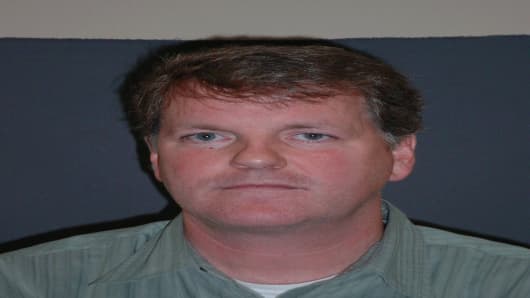US AirwaysChief Executive Doug Parker was arrested on suspicion of drunken driving just hours after his airline's $9.8 billion bid for Delta Air Lineswas rejected, Scottsdale police confirmed.
Meanwhile, a newspaper reported that Parker had a previous DUI conviction in 1991 when he worked for American Airlines in Dallas, and Parker admitted to two other alcohol-related incidents.
Parker, 45, was pulled over on Jan. 31 after leaving a party at the FBR Open golf tournament in Scottsdale, police Sgt. Mark Clark said. Parker was pulled over for driving 20 mph over the posted speed limit of 45 mph.
Results released Friday show Parker had a blood-alcohol level of 0.096, according to Clark. The legal limit in Arizona is 0.08.
According to a police report, Parker told police he had three beers during a two-hour period.
The arresting officer, Ben Roberson, wrote in the police report that Parker had bloodshot and watery eyes, slurred speech and alcohol on his breath. Parker refused to take a breathalyzer test, the report shows.
The officer performed roadside sobriety tests and arrested Parker. He then took Parker to a DUI task force post for booking and to have blood drawn for an alcohol-level test. Before the test was given, the report shows Parker asked to speak with a lawyer who also had been a passenger in his black BMW when he was pulled over.
The lawyer told Parker over the phone to take the test, the report shows.
Parker, a husband and father of three children who lives in the posh town of Paradise Valley, was cited for DUI and driving at an imprudent speed and released the night of his arrest. Police called a taxi for him and had his car towed.
Parker is scheduled to appear in Scottsdale Municipal Court on Feb. 21.
The Arizona Republic reported Friday that after Parker was arrested by Dallas police in January 1991 on suspicion of drunken driving, he pleaded guilty to the misdemeanor charge of DUI and was given a probated sentence of 30 days in jail, two years probation and a $250 fine.
Parker worked for American Airlines from 1986-91, was at Northwest Airlines in Minneapolis from 1991-95 and then joined Tempe-based America West Airlines as its chief financial officer. He became America West's CEO in September 2001 and the carrier acquired US Airways in 2005.
Parker wrote two letters of apology this week to US Airways employees regarding last month's incident but did not mention the 1991 DUI case.
In the letters, Parker said he was in too much of a hurry the night of his arrest, but that he was honest with Roberson about how much he drank. He said he did not believe his blood-alcohol level would be over the legal limit and that he was OK to drive.
In a statement issued Friday night, Parker said that he was "regrettably involved in three other alcohol-related incidents in my twenties. Two involved driving under the influence (one a misdemeanor) and the third occurred in college while a passenger in a friend's car."
However, Parker did not release any details of the other two incidents.
"As I communicated to our employees earlier this morning, my mistake of last week was just that _ a mistake, not a trend _ and I believe that events from 15 and 20 years ago do not reflect on the person I am today," Parker said in the statement.
US Airways vice president of communications Elise Eberwein said Parker "is embarrassed beyond words and knows more is expected of him." The airline said it would have no further comment on the incident Friday.
US Airways made a hostile bid for bankrupt Delta on Nov. 15. and later raised its bid by nearly 20 percent in hopes of swaying the carrier's official committee of unsecured creditors.
But the creditors rejected the offer on Jan. 31, and Parker pulled the bid within minutes of being informed of the move.
Parker said Thursday he wouldn't have done anything differently in regards to the Delta bid.
"The creditors just chose not to go with our proposal," he said. "We think our proposal was better, but it was their prerogative, and we left on our own terms."


